BIOPHILIC HEALTHCARE TOOLKIT
This project develops a card toolkit with case studies and synthesized empirical evidence to allow designers and healthcare providers to develop biophilic design attributes in hospitals and clinics, including natural daylight, natural materials, views, and gardens.
Biophilic design puts emphasis on people’s connection with nature, given “human inherent inclination to be affiliated with the ecosystem for their psychological and mental evolutionary development” [E. O. Wilson, (1984)]. This project synthesizes research and design guidelines for biophilic healthcare design to fully depict effective metrics that correlate biophilic decision-making with mental and physical recovery. Enumerating predictable outcomes related to daylight, views, gardens, and material, this research creates design guidelines correlated to recovery rates, length of stay, medication intake, stress levels, active behavior, and task performance in healthcare architectural design.
Biophilic design puts emphasis on people’s connection with nature, given “human inherent inclination to be affiliated with the ecosystem for their psychological and mental evolutionary development” [E. O. Wilson, (1984)]. This project synthesizes research and design guidelines for biophilic healthcare design to fully depict effective metrics that correlate biophilic decision-making with mental and physical recovery. Enumerating predictable outcomes related to daylight, views, gardens, and material, this research creates design guidelines correlated to recovery rates, length of stay, medication intake, stress levels, active behavior, and task performance in healthcare architectural design.

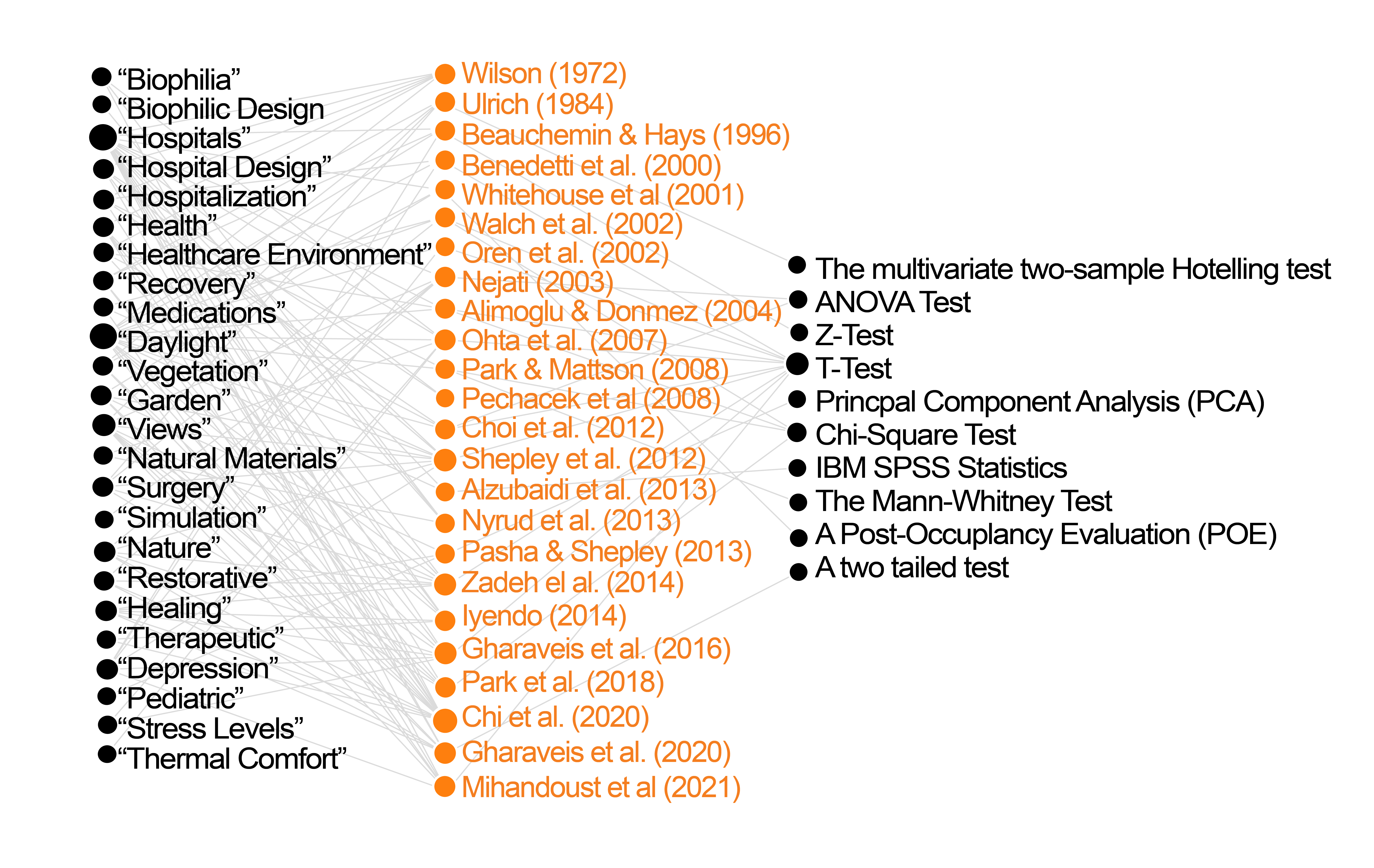
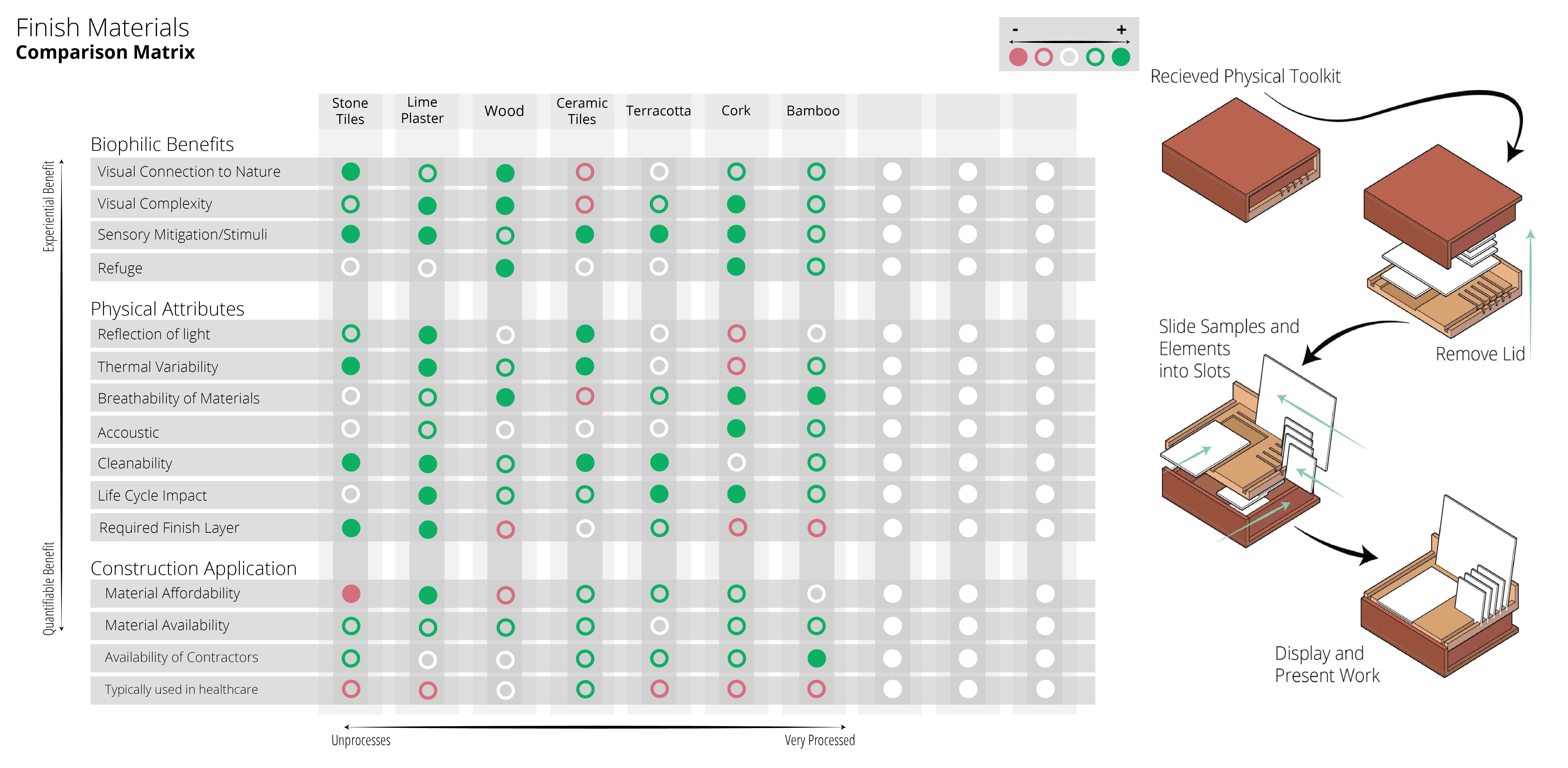
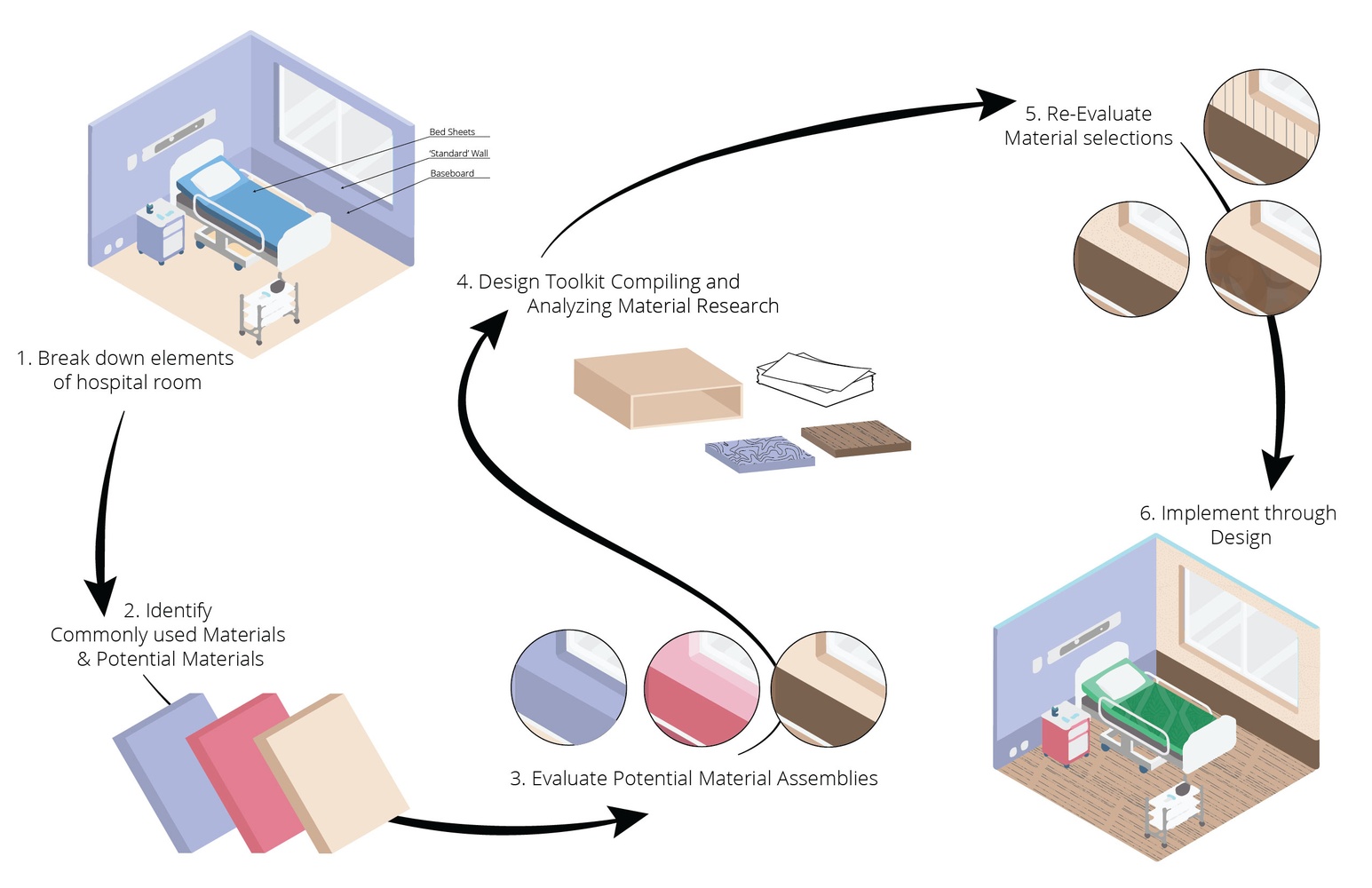

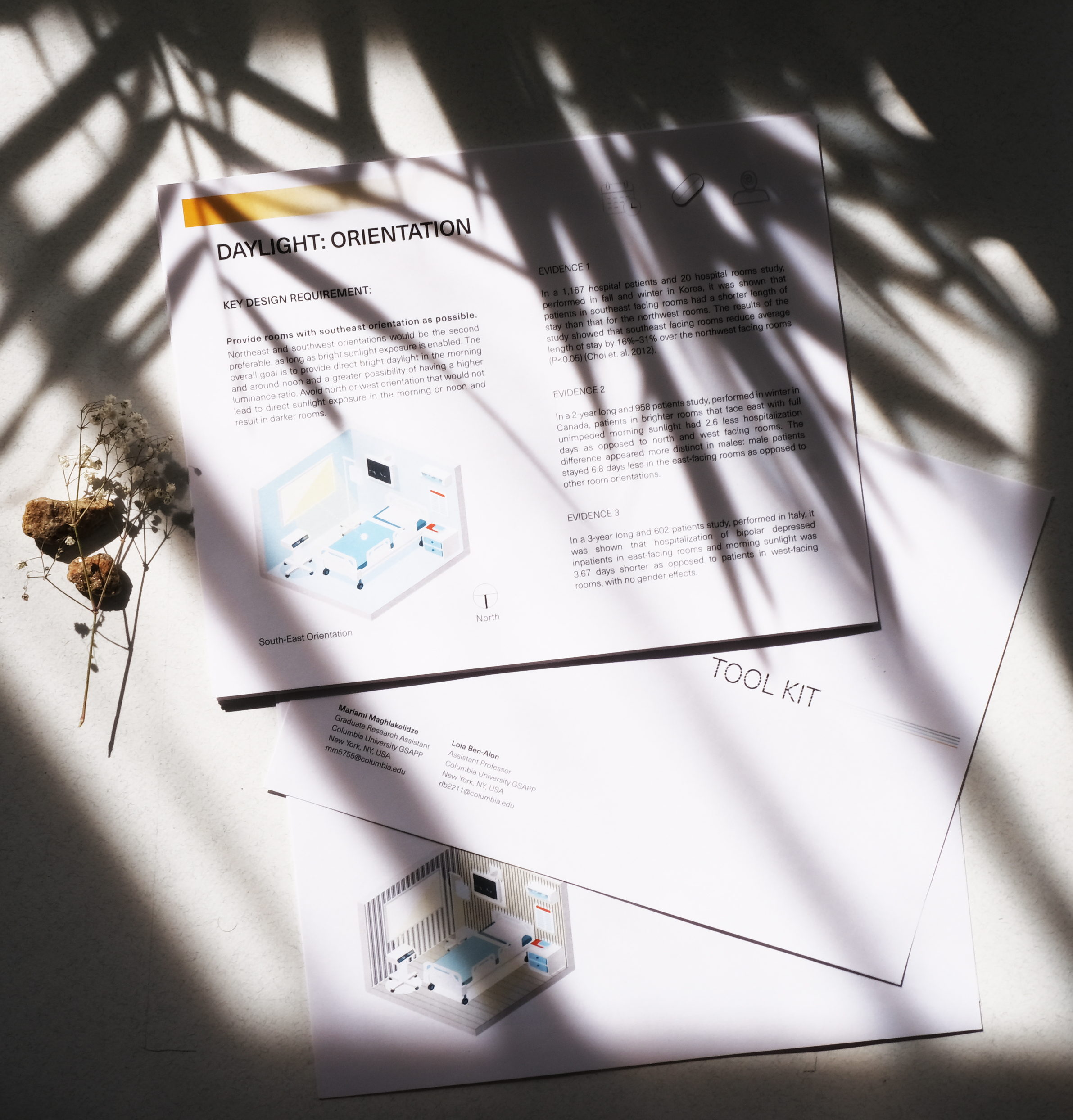
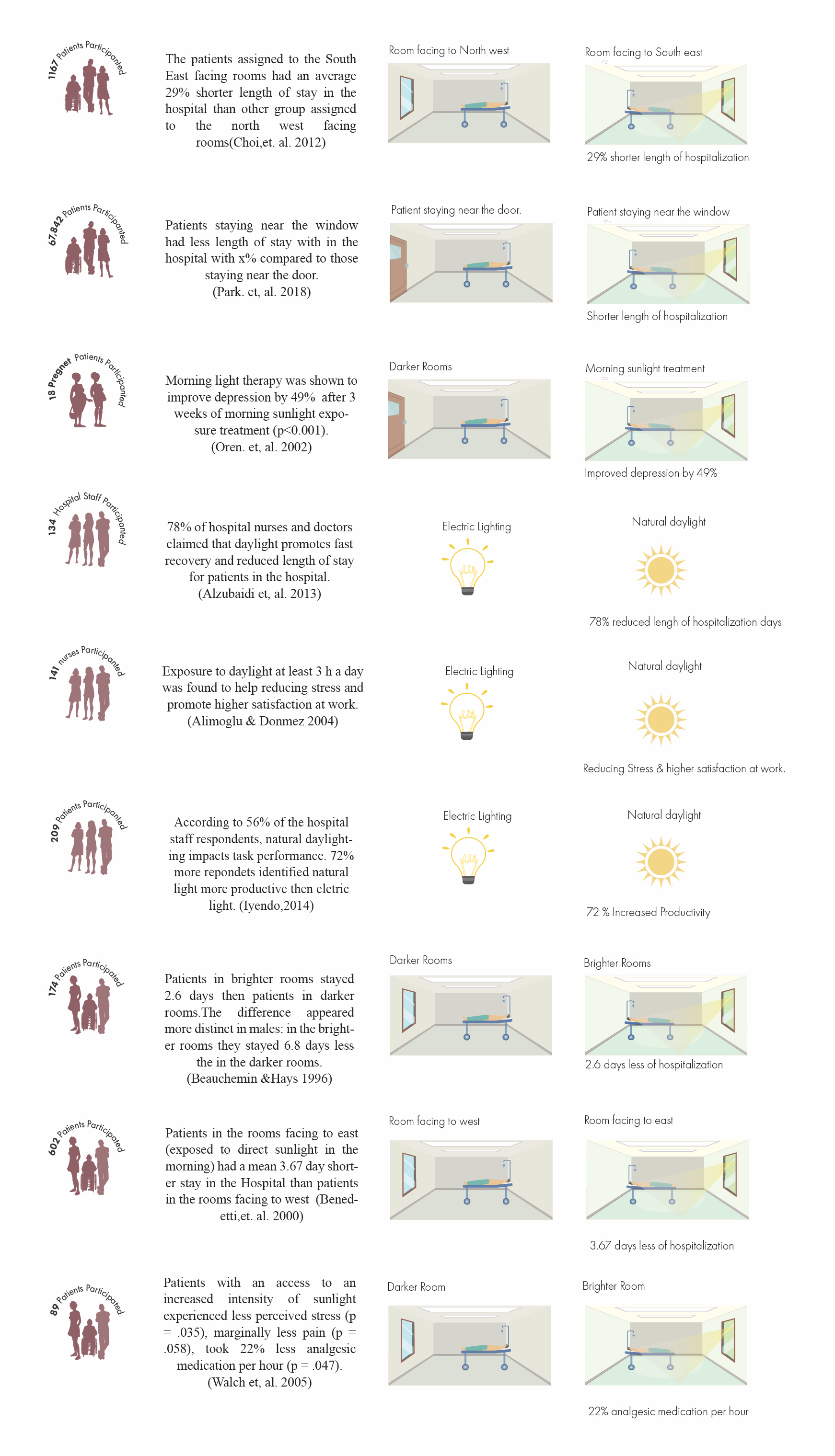
duration:
2020
–
2022
collaborators:
Mariami Maghlakelidze, Alejandra Meza (thesis student, CMU), Azadeh Omidfar Sawyer (CMU), Michal Gath Morad (ETH Zurich)
publications:
Symposium on Simulation for Architecture + Urban Design 2021
